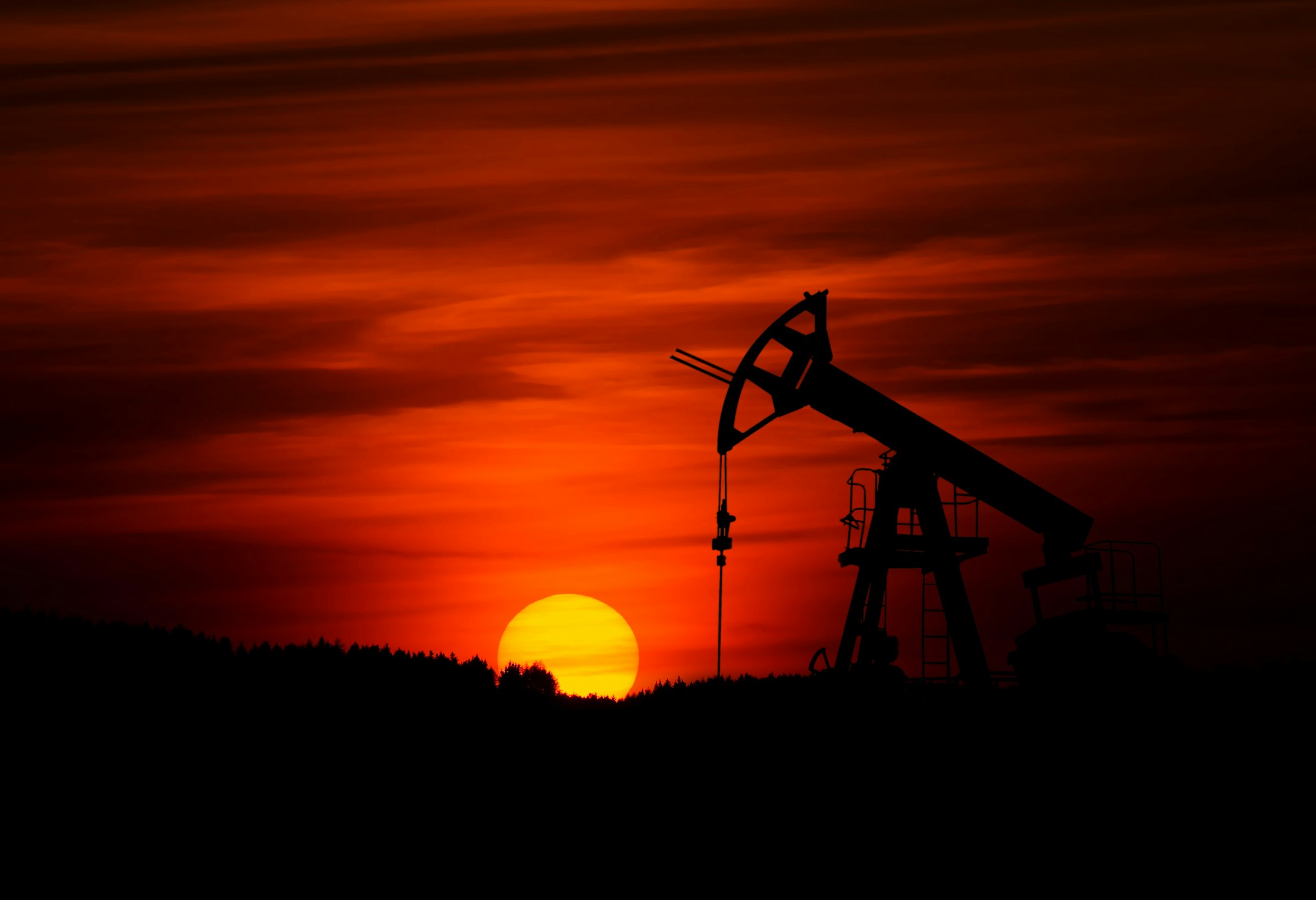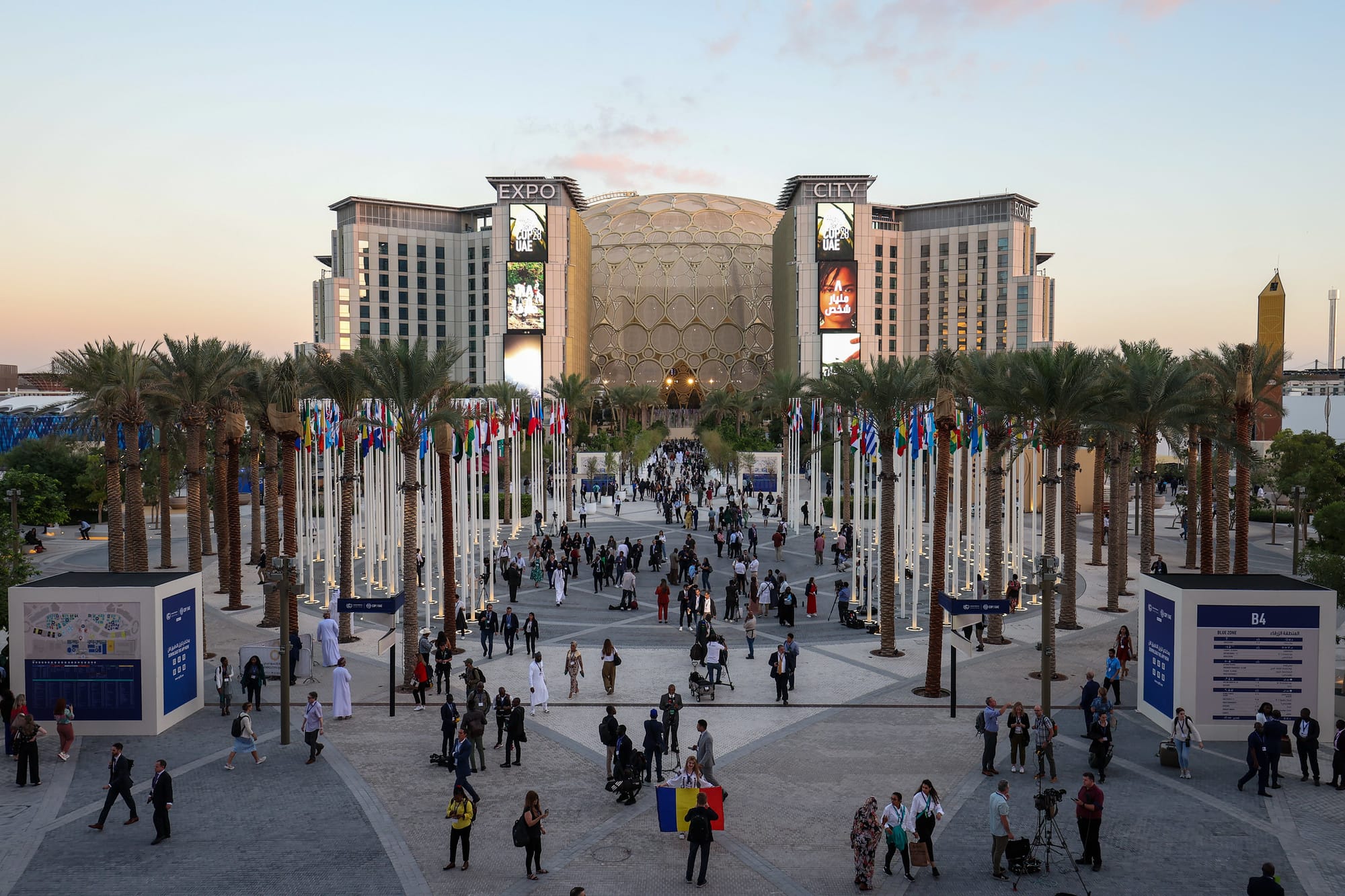The BBC has dropped a bombshell story in partnership with the Center for Climate Reporting (CCR), claiming that the UAE presidency of the UN’s COP28 climate summit in Dubai secretly used COP negotiations to strike new oil and gas deals that would increase global fossil fuel production.
This story suffers from serious flaws and omissions, and as a result, is misleading. Yet it’s been seized on by my fellow environmental campaigners to suggest that the COP28 negotiations are nothing more than a ploy to expand global fossil fuel production.
I write this story from the COP28 summit, where I’m here working to support a number of developing countries, and where I was fortunate to be able to deliver a keynote presentation on the inevitable, rapid economic obsolescence of fossil fuels to a UN audience of government leaders – an issue I write about at length.
What I’m seeing here is that this recent reporting has dented confidence on the ground at the COP summit, to the point that it could derail the prospects of reaching a global climate agreement - which I believe could result in a major breakthrough in the battle to phase out fossil fuels and address climate change.
I’m concerned that critical gaps in this current reporting trend, rather than helping the cause of fighting climate change, could therefore damage that cause.
The original BBC/CCR exclusive has been followed by a string of further stories that essentially double-down on things that have been repeatedly reported for months – that the UAE is investing in increasing fossil fuel production, and that the COP28 president, Dr Sultan Al Jaber, believes that science doesn’t support a phase out of fossil fuels.
So this piece is the first in a series in which I’ll try to explore all these stories to see how well they stack-up, and to unearth deeper complexities which are crucial for all of us to understand.
I’ve been reporting on these issues as an investigative journalist for 23 years. In that period, I’ve broken major exclusives on how fossil fuel interests have fatally compromised climate negotiations, such as the COP26 summit hosted by the UK. And earlier this year I wrote an open letter to the COP28 president, Dr Sultan Al Jaber, offering a deep systems-based critique of parts of the COP28 presidency’s agenda.
Since then, I also offered a systems assessment of how the COP28 presidency’s policy agenda is the most ambitious compared to any previous UN climate summit – and that if implemented, its core proposals would make a significant impact in accelerating global system transformation toward a world consistent with staying within the 1.5C safe limit recognised by the Paris agreement.
The UAE’s role as a major global oil producer has been the focal point of reporting on its COP28 presidency. To some extent, this is reasonable and necessary. But the BBC story is so oversimplifying, it’s in danger of misleading readers in many important ways.
The job of journalism is not to reinforce a pre-existing bias – but to get at what’s really going on, even if that’s complex; and to acknowledge if something is uncertain. The BBC did not do that.
Did the COP28 presidency use pre-COP talks to strike secret oil and gas deals that would boost global fossil fuel production?
In its first major scoop, the BBC cited leaked briefing documents prepared by the COP28 presidency team for meetings with at least 27 foreign governments ahead of the COP summit. The story has not only gone viral, it’s being seen as smoking gun proof of how the COP28 presidency is greenwashing plans to expand fossil fuel use around the world.
Having studied the story carefully, though, I’m convinced that the leaked documents cannot really be used to validate this verdict.
Now I haven’t seen these myself, so I can only comment on what the BBC has reported about them. But going from the BBC’s reporting, its main conclusions are at the very least not fully proven.
The background
The background documents offer ‘talking points’ about the Abu Dhabi National Oil Company (Adnoc) and Masdar, the UAE’s state-owned energy giants. The BBC presumes that preparing talking points on areas of commercial cooperation between the UAE and other governments is necessarily proof of intent to use diplomatic dialogues focused on the COP process to pursue other commercial interests.
While that might appear to be the case at first glance, my first instinct as an investigative journalist is to stop and ask – but is it?
The first thing that drew my attention to the weakness of the story is a key contradiction in the BBC’s reporting.
In the COP28 team’s initial response to request for comment, it simply stated that these were “private meetings”. The BBC claimed that they didn’t deny using the meetings for business discussions. Yet later in the piece, the BBC acknowledged that the COP28 team had offered a denial, by saying it was “simply untrue” that the commercial talking points “always need to be included” in the briefing notes.
What I didn’t quite understand was why the BBC would insist that the COP28 team had not denied their accusations, when the BBC simultaneously acknowledged that the COP28 team did deny that commercial talking points had to be part of the briefing notes.
The way the BBC chose to present the information it had to hand is questionable. By claiming that the COP28 team “did not deny” using ministerial meetings to strike business deals, it seemed to vindicate its story – but its own reporting within the same article seems to contradict this.
Days later, at a press conference the COP28 president explicitly denied that his meetings with ministers were about drumming up oil and gas expansion deals. He said that he had not actually seen the commercial talking points that had been leaked to the BBC.
What were these notes?
Now if that is true, then it means these talking points leaked to the BBC may well have just been part of the sort of wider general background guidance notes that are regularly prepared for diplomatic teams before entering into bilateral discussions. Out of these sorts of notes, it will often only be a small portion of this corpus that makes it up to a final brief that’s read and used by the diplomat.
Equally, the notes may well have been part of a raft of various such notes that someone in the COP28 team believed could be an important contribution to understanding the UAE’s relationship with these countries. Identifying overlapping areas of commercial interest is a routine component of diplomacy. The question, ultimately, is how they were used.
So the next unanswered question I had was about the email exchange between COP28 staff members asking the talking points to be included in briefings.
The BBC report did not specify precisely who it is that reportedly emailed COP28 staff members about including commercial talking points in background briefing notes.
This is important because any UN COP country presidency is a giant, bureaucratic operation with multiple senior and junior directors whose jurisdiction often overlaps.
Did Al Jaber use them?
The next question is whether there is anything in the BBC’s reporting which can decisively prove its unequivocal assertion that Dr Sultan Al Jaber used these background notes to conduct business dealings with governments in his pre-COP meetings?
At this crucial point, the BBC’s reporting gets vague. It acknowledges that:
“It is not clear on how many occasions Dr Jaber and his colleagues raised the talking points in COP28 meetings with foreign governments.
We know, on at least one occasion, a nation followed up on commercial discussions brought up in a meeting arranged by the UAE's COP28 team.
However, 12 nations have told the BBC there was either no discussion of commercial activities during meetings, or a meeting did not take place.”
That’s extraordinarily weak, given the strength of the headline.
The Center for Climate Reporting’s version of the story says that it found only one other confirmation. Both confirmations came from whistleblowers familiar with these background notes – but who could clearly not confirm whether the notes had translated into tangible business discussions.
If they could only confirm two instances of pre-COP meetings touching on areas of commercial cooperation, based on the same whistleblowers who leaked the documents, that’s more consistent with Al Jaber’s statement that he didn’t actually read or use these briefing notes.
The BBC also concedes that 12 governments either confirmed no meetings happened, or that no commercial issues were raised in meetings which did happen.
CNN also tried to verify the story by contacting 15 of the countries. Of these, four confirmed meetings, but said either no business discussions took place or did not confirm whether they did. A further two replied to say no meeting occurred.
This too is crucial – because it suggests that the background briefing notes obtained by the BBC were not consistently used by the COP28 presidency: In short, for more than half of the countries in question, responses to media inquiries provide no evidence these notes were used or applied. And for the rest, there’s no evidence either. That simply doesn't support the idea that these notes were of such crucial significance they were used for the diplomatic meetings.
Therefore, the BBC has overreached in its conclusion – I don’t entirely blame it for doing so. I mean, it’s a hot exclusive. The only problem is that a serious investigation can’t just take a bunch of documents at face value without actually investigating them and their context properly – which in my view the BBC failed to do.
Increasing fossil fuel projects?
What about the specific content of the background notes. Do they really in support the idea that the UAE was planning to use ministerial pre-COP meetings to win new deals to increase fossil fuel production in a way that undermines that Paris agreement?
Here it seems to me that the BBC/CCR story systematically misrepresented the contents of the documents.
The BBC mentions six specific cases. Perhaps there are more. But of the ones it identifies, I found no evidence to support the claim that they represent an effort to increase oil and gas production. And the only case which actually talks about expanding something is a wind farm project in the UK.
Let’s go through it in detail and look at the key facts.
Fossil fuels in partnership with China?
The BBC says:
They included proposed ‘talking points’, such as one for China which says Adnoc, the UAE's state oil company, is ‘willing to jointly evaluate international LNG [liquefied natural gas] opportunities’ in Mozambique, Canada and Australia.
The first step to understanding this is to look deeper into the context of the countries and projects mentioned.
All three countries are coal producers. Mozambique last month was eyeing up receiving $200 million to invest in ramping-up coal production. Canada is the world’s thirteenth largest coal producer, though its production is declining, while Australia is expanding production dramatically. Canada is also of course the world’s major producer of oil from tar sands, one of the dirtiest fossil fuels.
For the last few years, most scientific life-cycle studies have shown that LNG’s carbon emissions are around 50% lower than coal. This is the view of the International Energy Agency, the US Department of Energy and the wider literature.
The main outlier is research by Cornell University ecologist Robert Howarth offers the main critique of this research – he recently released a paper concluding that LNG produces higher emissions. This paper is not peer-reviewed, however. Howarth’s body of work has been widely contested in the scientific community. His famous 2011 paper claiming that shale gas has higher emissions than coal, on which his new LNG work builds, was heavily critiqued by other Cornell University scientists for inappropriate assumptions and misinterpreting his own data.
All in all, there’s a strong scientific case for the idea that LNG can work as a bridge fuel to accelerate the disruption of coal and oil, reducing emissions by as much as half, while we are still building out renewable energy.
Exploring LNG opportunities in these countries with China might well count, technically, as being open to ‘new’ fossil fuel projects. But what the BBC report completely ignores is that rather than leading to a total increase in fossil fuel production, these would potentially drive a significant net decrease in overall emissions by disrupting existing oil and coal projects.
Fossil fuels in Colombia?
The BBC goes on to say:
The documents suggest telling a Colombian minister that Adnoc ‘stands ready’ to support Colombia to develop its fossil fuel resources.
As the only quote here is “stands ready”, it’s not at all clear that this implies a commitment to help Colombia launch new fossil fuel projects, as opposed to helping them develop existing oil and gas projects.
Colombia has famously committed to issuing no new oil and gas exploration licenses, and is only continuing with oil exports from existing reserves. With production declining, and oil revenues comprising 10% of GDP, Colombia is currently focused on reviving and developing already-awarded blocks. The background notes provide no reason to assume it concerns trying to identify and exploit new reserves.
Fossil fuels in Germany?
The BBC goes on:
There are talking points for 13 other countries, including Germany and Egypt, which suggest telling them Adnoc wants to work with their governments to develop fossil fuel projects.
But then in describing the details of what the notes say, there’s once again nothing that specifically implies launching new fossil fuel production projects.
For instance, according to the BBC:
Germany was to be told by Adnoc: ‘We stand ready to continue our LNG supplies.’
This is a straightforward confirmation of simply continuing an existing supply stream, rather than creating a new one.
Fossil fuels in Brazil?
The background notes suggest asking the Brazilian environment minister for help “securing alignment and endorsement” for Adnoc’s bid to buy a key stake in Braskem.
The BBC describes Braskem as “Latin America’s largest oil and gas processing company”, but to be more clear, it’s a petrochemicals company – not a fossil fuel producer – which means it uses fossil fuels to produce chemicals.
Increasingly, though, Braskem has developed a reputation for pioneering innovative technologies for sustainable chemicals, and is recognised by the World Climate Foundation as a pioneer in this space.
Either way, this is about a bid for a stake in an existing company, rather than a new project to increase fossil fuel production.
Fossil fuels in Saudi Arabia and Venezuela?
The final example of a fossil fuel project mentioned by the BBC is a reference to Adnoc talking points suggesting “the oil-producing nations of Saudi Arabia and Venezuela be told ‘there is no conflict between the sustainable development of any country’s natural resources and its commitment to climate change”.
Although this is a general statement of support for the idea that these countries can combat climate change while ‘sustainably’ developing their resources, which of course include fossil fuels – it doesn’t specify fossil fuels and offers no discussion of any specific new fossil fuel production projects.
Even if we might rightfully take objection to the sentiment, the issue here is about journalistic accuracy: whether we can find concrete evidence of a proposal to explore specific commercial opportunities here to increase fossil fuel production – we can’t.
Is the BBC story accurate?
In asserting definitively that the leaked documents “appear” to show the UAE wheeling and dealing to support new fossil fuel production projects around the world, the BBC story doesn’t accurately represent their contents. In my view, the BBC’s verdict that they provide clear proof of the COP28 presidency trying to strike commercial deals under the cover of its climate negotiations basically remains unproven.
What the leaked documents do show unequivocally is that someone inside the COP28 presidency had requested some background research and talking points to be prepared to guide diplomatic discussions. But it’s not clear who, and what happened next.
The leak raises legitimate questions about the COP28 presidency’s relationship with the UAE’s state-owned energy companies (anyone who understands how the UAE works, however, would hardly consider the blurring of lines between the state and these companies a mind-blowing revelation). But it’s simply not clear what happened with these documents, and whether they were indeed used in the way the BBC assumes; and in fact out of 27 countries, it was only possible to identify two cases of commercial issues being discussed.
Overall, then, the BBC’s claim that these notes are evidence of ‘oil and gas deals’ that “appear” to increase fossil fuel production is misleading.
Despite that, this story is now seen as a sort of unimpeachable ‘smoking gun’. I think it may provide us an insight into the bureaucratic workings of the UAE’s COP presidency – but not much more than that.
If you appreciated this piece, you can keep this free newsletter alive and thriving by joining our community as a Supporter for the price of a cup of coffee a month.






